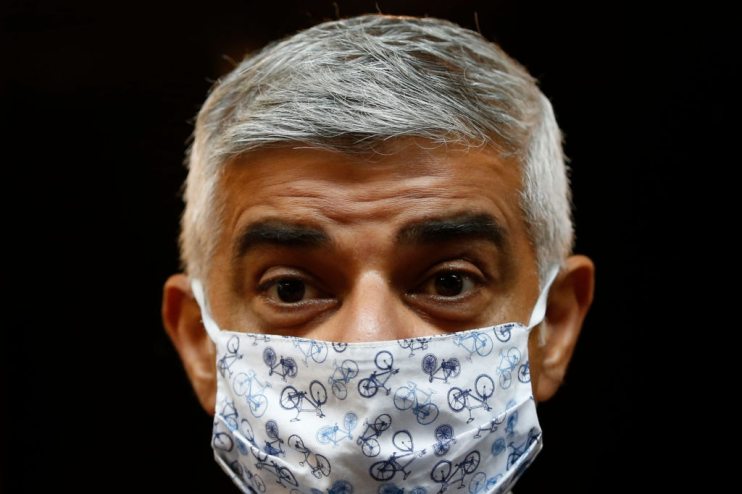Sadiq Khan’s £15 congestion charge is preventing London’s bounce back from the pandemic

There is rarely such a thing as a temporary regulation or tax, even those instituted in response to an emergency. Politicians enjoy the power to regulate and even more the receipt of taxes. But regulation and taxes are the enemy of innovation and business, especially small businesses. The damage they do can take years to correct.
The introduction of rent controls in 1915 to stop wartime profiteering resulted in the steady erosion of the private rental market. It contributed to shortages through lack of investment that resulted in higher prices. It took more than 70 years for the restrictions to be replaced and the private rental market to begin to return.
The proposal by London Mayor Sadiq Khan to maintain the emergency Congestion Charge price hike is another example of how political interventions justified as a response to an emergency, in this case the loss of income through Covid-19 and its lockdowns, become the problem rather than the solution.
In June last year, in response to his own mismanagement of TfL, Khan raised the Congestion Charge from £11.50 to £15.00 and the hours it covered were extended from 07.00 to 22.00 as well as across the weekends. Now he wants to maintain the higher price while trimming back the hours to between 07.00 and 18.00 on weekdays; retaining a weekend charge between 12.00 and 18.00.
The problem is the higher charge with longer hours undermines London’s ability fully to reopen for business. The regime will deter people coming into the centre, hurting businesses that desperately need customers – in turn this will impact employment and earnings. He is creating a downward spiral for London where the imposition of higher costs reduces turnover, brings ever greater pressure on TFL, forcing him to raise prices again and so the cycle perpetuates itself and gets worse.
He should be slashing the congestion charge. He may think this would result in less revenue. He would be wrong. A lower charge would encourage more travel. It would allow London to buzz again and, with that, not just TFL’s coffers but those of all businesses. The greater benefit to London’s economy would raise all boats.
The fixed higher charges also act as a regressive tax on the working class. The wealthiest do not care about £15 but the “white van driver” is hit hard in his pocket. As with all regressive taxes, the gulf between the rich and poor will be widened. Is Khan not meant to be from the Labour Party?
We need our small businesses to thrive, they need customers to make sales. Encouraging people to come into the city and conduct their business is vital. There is already a growing switch to less polluting vehicles. The charge should not be a covert means to tackle air quality standards. Punishing the working class and discouraging tourists helps no one.
London must be demonstrably open for business; its taxes and charges cannot make it only affordable for the wealthy.
If Khan genuinely cares about London and has a social conscience he would abandon plans to make his temporary changes permanent.